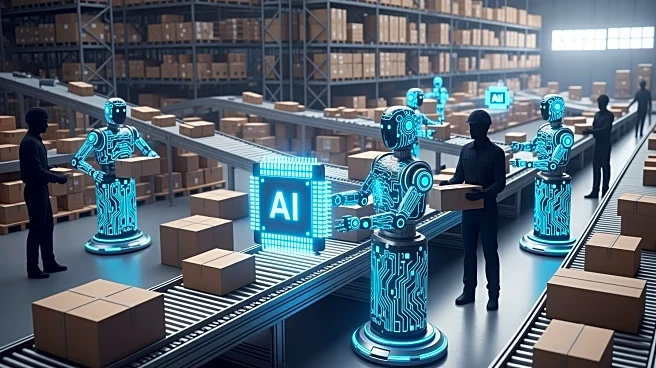What's Happening?
Locus Robotics is leveraging AI to enhance the efficiency and adaptability of warehouse automation systems. The company's focus on 'physical AI' involves integrating advanced sensors and real-time decision-making
capabilities into autonomous mobile robots (AMRs). This approach allows AMRs to perceive and interact with their environment, optimizing warehouse operations. Locus Robotics' software leader, Hamid Montazeri, emphasizes the importance of domain-specific AI models in improving productivity and scalability in logistics.
Why It's Important?
The integration of AI into warehouse automation systems represents a significant advancement in logistics technology. By enhancing the capabilities of AMRs, Locus Robotics is addressing labor shortages and supply chain pressures, offering a cost-effective solution for businesses. The use of domain-specific AI models allows for targeted improvements in efficiency and adaptability, supporting the growth of automated logistics operations. This development highlights the transformative potential of AI in reshaping the fulfillment industry.
What's Next?
Locus Robotics plans to continue advancing its AI-driven warehouse automation systems, focusing on improving sensor technology and data fusion capabilities. As AMR capabilities evolve, the company expects to see further gains in efficiency and adaptability, enhancing the performance of fulfillment operations. The ongoing development of physical AI may lead to new applications and innovations in logistics, driving the adoption of automated systems across the industry.
Beyond the Headlines
The emphasis on domain-specific AI models by Locus Robotics reflects a broader trend in the robotics industry towards specialized solutions. By focusing on targeted improvements, companies can achieve faster ROI and greater scalability, supporting the growth of automated systems. The development of physical AI also underscores the importance of software innovation in driving advancements in robotics and automation.











